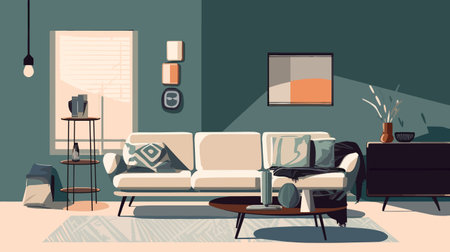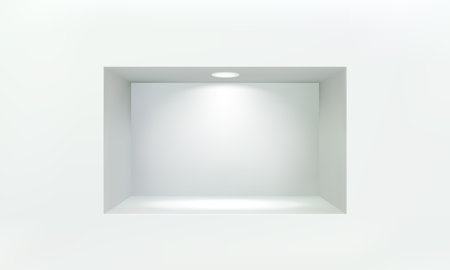Introduction to Ceiling Fans with Lights in Bedroom Design
Ceiling fans with integrated lights are becoming a staple in American bedrooms, blending comfort and functionality in one sleek package. These modern fixtures combine the cooling benefits of a traditional ceiling fan with built-in lighting, making them an efficient solution for bedroom spaces of all sizes and styles. As more homeowners look for ways to maximize both airflow and illumination without cluttering their ceilings, this dual-purpose design is gaining traction across the United States.
One reason for their growing popularity is convenience. Instead of installing separate light fixtures and fans, a ceiling fan with lights offers a two-in-one approach that saves space and simplifies the overall bedroom layout. Whether youre designing a cozy master suite or updating a guest room, these units help maintain a clean, streamlined look while providing essential lighting and air circulation.
Why Are Ceiling Fans with Lights Trending in American Bedrooms?
Several factors contribute to the rise of ceiling fans with integrated lights in bedroom design:
| Feature | Benefit |
|---|---|
| Space Efficiency | Combines two functions (lighting + fan) in one fixture, ideal for rooms with limited ceiling space. |
| Energy Savings | Helps reduce heating and cooling costs by improving air circulation, often using less electricity than running AC units. |
| Modern Aesthetics | Available in various styles and finishes to match any bedroom decor. |
| Enhanced Comfort | Offers adjustable lighting and multiple fan speeds for personalized comfort day or night. |
| User Convenience | Many models include remote controls or smart home compatibility for easy operation. |
This growing trend reflects how American homeowners prioritize both practicality and style when it comes to bedroom design. By integrating ceiling fans with lights, they can enjoy a more comfortable and visually appealing space without sacrificing floor or wall area for extra fixtures.
2. Benefits of Ceiling Fans with Lights in the Bedroom
Functional Advantages of Ceiling Fans with Lights
Ceiling fans with lights offer a practical solution for bedrooms by combining two essential functions: lighting and air circulation. This dual-purpose fixture is a smart choice for homeowners looking to maximize both comfort and efficiency in their living spaces.
Energy Efficiency
One major benefit is energy savings. Ceiling fans use less electricity compared to air conditioners, helping reduce monthly utility bills. When paired with LED light kits, these fixtures further cut down on energy usage. Many models are also compatible with smart home systems, so you can program schedules or control them remotely for even greater efficiency.
Improved Air Circulation
A ceiling fan improves airflow in your bedroom, which can make the space feel cooler during summer and distribute warm air evenly in winter when used in reverse mode. This not only increases comfort but may also help you rely less on heating and cooling systems.
Enhanced Lighting
Integrated lights ensure your bedroom is well-lit, eliminating the need for additional lamps or overhead fixtures. Many modern ceiling fans come with dimmable lights or color temperature options, letting you adjust brightness to suit different moods or activities—from reading at night to getting ready in the morning.
Key Benefits Table
| Feature | Description | Bedroom Impact |
|---|---|---|
| Energy Efficiency | Saves on electricity by reducing AC/heating use and using efficient lighting | Lowers utility bills; eco-friendly choice |
| Air Circulation | Keeps air moving for year-round comfort | Makes room feel cooler in summer, warmer in winter |
| Lighting Flexibility | Dimmable and customizable light options available | Adjusts ambiance for different needs (relaxing, working, dressing) |
| Space Saving | Combines two fixtures into one ceiling unit | Frees up floor and table space for other furniture or decor |
Aesthetic Appeal and Customization
Ceiling fans with lights are available in a wide range of styles, finishes, and blade designs. Whether your bedroom has a modern, traditional, or farmhouse look, you can find a fan that fits right in. Some models even offer interchangeable blades or light covers so you can update the appearance without replacing the entire fixture.

3. Potential Drawbacks of Ceiling Fans with Lights
While ceiling fans with lights are a popular choice in American bedrooms, they aren’t perfect for everyone. Here are some potential downsides to keep in mind as you plan your bedroom design:
Noise Issues
Even high-quality ceiling fans can sometimes create unwanted noise. Over time, loose parts or an unbalanced fan can produce rattling or humming sounds. This can be especially bothersome at night when you’re trying to sleep. If you’re sensitive to sound, it’s important to look for models that are specifically labeled as quiet or silent.
Installation Challenges
Installing a ceiling fan with lights is often more complicated than installing a standard light fixture. You might need additional wiring, reinforcement for the mounting bracket, or even professional help. This can mean extra costs and time. Here’s a quick comparison:
| Standard Light Fixture | Ceiling Fan with Light | |
|---|---|---|
| Difficulty | Easy | Moderate to Hard |
| Tools Needed | Screwdriver, Ladder | Screwdriver, Ladder, Drill, Electrical Tester |
| Professional Help? | Rarely Needed | Sometimes Needed |
Limitations in Light Coverage and Style
Ceiling fans with built-in lights often don’t provide as much illumination as standalone light fixtures. The light kits may not be bright enough for larger bedrooms or spaces that need task lighting. Also, design choices can be limited—many ceiling fans come in traditional styles that might not match every modern or minimalist décor.
Common Limitations Table
| Limitation | Description |
|---|---|
| Light Output | Might not fully illuminate larger rooms; may require additional lamps. |
| Style Options | Fewer contemporary designs available compared to separate lights. |
| Fan Size Constraints | Bigger fans with lights can overpower small bedrooms visually. |
Summary of Drawbacks
If you value complete silence while sleeping, want a simple DIY installation, or need strong and stylish lighting, these factors could be important when deciding if a ceiling fan with lights is right for your bedroom.
4. Style and Design Considerations
When choosing ceiling fans with lights for your bedroom, its important to think about how they will fit in with your overall design. The right fan can blend seamlessly with your décor or even become a stylish focal point. Here are some key style and design elements to consider:
How Ceiling Fans with Lights Match Different Bedroom Styles
Ceiling fans with lights come in many designs, from modern and minimal to traditional and rustic. Whether your bedroom has a cozy farmhouse feel or a sleek contemporary look, there’s likely a fan that matches your taste. Consider these examples:
| Bedroom Style | Recommended Fan Finish | Lighting Tone |
|---|---|---|
| Modern/Contemporary | Brushed nickel, matte black | Cool white or daylight |
| Traditional/Classical | Oil-rubbed bronze, antique brass | Warm white |
| Farmhouse/Rustic | Distressed wood, matte white | Soft white or warm white |
| Coastal/Beachy | White, weathered gray | Natural daylight or soft white |
The Importance of Size and Proportion
The size of your ceiling fan matters just as much as the look. A fan that is too large can overpower a small bedroom, while one thats too small may not circulate air effectively. Here’s a simple guide to help you choose the right size:
| Room Size (sq ft) | Recommended Fan Blade Span (inches) |
|---|---|
| Up to 75 sq ft (Small) | 29″–36″ |
| 76–144 sq ft (Medium) | 36″–42″ |
| 145–225 sq ft (Large) | 44″–50″ |
| 226–400 sq ft (Extra Large) | 50″–54″ |
Selecting the Right Lighting Tone and Bulb Type
The lighting tone can set the mood in your bedroom. Soft, warm tones create a relaxing atmosphere, while cooler tones are great for reading or tasks. Many American homes now use LED bulbs for energy efficiency and long life. Check if the ceiling fan supports dimmable bulbs so you can easily adjust the brightness based on your needs.
5. Smart Features and Modern Upgrades
Ceiling fans with lights have evolved far beyond basic functionality, now offering smart features and modern upgrades that make them highly attractive for American bedrooms. These enhancements focus on convenience, energy efficiency, and integration with the latest home technology trends.
Remote Controls for Ultimate Convenience
Many ceiling fans with lights now come with remote controls, allowing you to adjust fan speed, light brightness, and even set timers—all from the comfort of your bed. This is especially convenient in larger bedrooms or for those who want to minimize getting up during the night.
Smart Home Compatibility
Integration with popular smart home systems like Amazon Alexa, Google Assistant, and Apple HomeKit has become a key selling point. With voice control or smartphone apps, you can easily turn the fan or lights on/off, adjust settings, or schedule routines. This compatibility streamlines bedroom routines and supports energy-saving habits.
Adjustable Lighting Options
Modern ceiling fans often feature adjustable lighting—meaning you can change the color temperature (from warm to cool) and dim the lights to suit different moods or activities. This flexibility is ideal for creating a relaxing atmosphere in the bedroom or providing brighter light when needed.
Comparison of Smart Features
| Feature | Benefit for Bedrooms | Popular Brands/Models |
|---|---|---|
| Remote Control | Easy operation without leaving bed | Hunter, Harbor Breeze, Minka-Aire |
| Smart Home Integration | Voice control & automation options | Haiku by Big Ass Fans, Casablanca, Honeywell |
| Adjustable Lighting | Create ambiance & save energy | Westinghouse, Reiga, Prominence Home |
| Scheduling & Timers | Set routines for sleep/wake cycles | Lumio, Modern Forms, GE Lighting Fans |
User-Friendly Upgrades Americans Love
The combination of these smart features makes ceiling fans with lights a practical and stylish choice for modern American bedrooms. Homeowners appreciate being able to customize their environment effortlessly, which not only enhances comfort but also adds value and appeal to their living space.
6. Is a Ceiling Fan with Lights Right for Your Bedroom?
Choosing the right ceiling fan with lights for your bedroom isn’t just about style—it’s about matching your specific needs, the size of your space, and even your local climate. Here’s how you can decide if this fixture is the right fit for you.
Evaluate Your Needs
Think about what you want from your bedroom lighting and airflow. Do you need a strong breeze to keep cool at night? Are you looking for soft lighting or something brighter for reading? Consider these questions before shopping.
Measure Your Space
The dimensions of your room will help determine the right fan size and light output. An oversized fan can overwhelm a small room, while a tiny fan won’t move enough air in larger spaces. Use this quick guide:
| Room Size (sq ft) | Recommended Fan Blade Span | Light Output Needed |
|---|---|---|
| Up to 75 sq ft (Small) | 29″-36″ | 800-1200 lumens |
| 76-144 sq ft (Medium) | 36″-42″ | 1200-2000 lumens |
| 145-225 sq ft (Large) | 44″-54″ | 2000+ lumens |
| 226+ sq ft (Extra Large) | 54″+ | 2500+ lumens |
Consider Your Local Climate
If you live in a warm or humid area, a ceiling fan can help circulate air and keep things comfortable year-round. In colder climates, look for fans with reversible motors so you can use them to push warm air down during winter months.
Quick Checklist Before You Buy:
- Ceiling Height: Make sure there’s enough clearance above and below the fan.
- Existing Light Fixtures: Will the ceiling fan replace another light, or supplement it?
- Noisy Operation: Bedrooms need quiet fans—look for models known for silent performance.
- Control Preferences: Remote controls and dimmable lights add convenience.
- Aesthetic Match: Pick finishes and styles that blend with your bedroom decor.
Personalize Your Choice
Your lifestyle matters. For example, if you love reading in bed, consider fans with adjustable light temperatures or dimming features. If sleep comfort is your top priority, focus on airflow ratings (CFM) and whisper-quiet designs.


